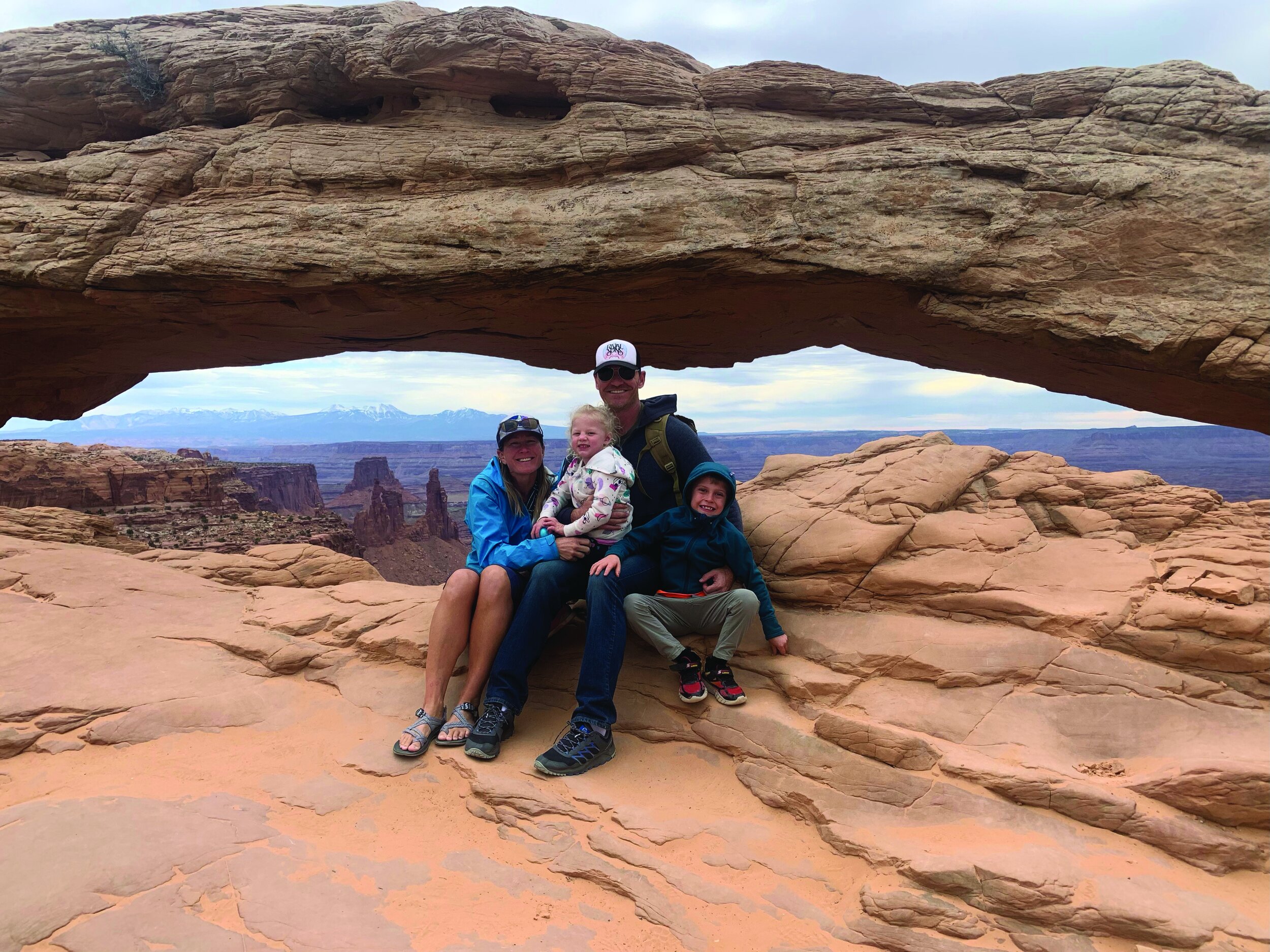Family Camping 101
Photos by Sue Bergethon.
When Nici Flann looks back at her childhood in Western Colorado, family camping provides many favorite memories.
“Camping was a chance to get away as a family with very few restrictions. It was a time to explore and play and not have to be anywhere or do anything and eat all kinds of food you couldn’t eat at home,” she explains.
The opportunity to be outdoors together is a big draw for many families. There is something special about being in nature that brings out the best in all of us, no matter our ages. And, that is why Flann continues the family camping tradition with her two sons and their friends, who are now all in their 20s.
Sue Bergethon is another Western Colorado mom, with two young children, ages 5 and 9, who treasures the time her family spends camping.“
We love camping,” she shares. “Every year my kids tell us they want to do more.”
TENTS VERSUS RVS
The type of camping you choose can have a lotto do with how much you want to invest, the places you want to go, how many days you’ll be out and about, and your willingness to sleep on the ground.
Jessica Averett and her family of seven are tent campers but have an RV for multi-week, long-distance adventures. Flann and her kids mix it up: adult sons in tents, mom in the teardrop. As for Bergethon, after a tent camping“ disaster,” she and her family opt for an 18-foottrailer.
Whatever type of camping your family prefers, we all agree that camping is even more fun when you share the experience with friends, trading your best tips and building memories together.
FAMILY-TESTED PRO TIPS
Plan ahead. Since the pandemic, competition for established campsites has markedly increased, and reservations are all but required. If you want to camp during the summer, plan and reserve early. Bergethon recommends reserving popular locations like state parks at least six months ahead. Even primitive sites on public lands are at a premium. Sites with established fire pits and space to park are fair game. Driving off-road and creating new sites is not.
Less is best. Recognizing that kids will get dirty, Averett brings minimal clothing for her kids and doesn’t worry about cleanliness. The same goes for toys and other diversions. “If we bring a lot of toys, our kids will play with toys. If we don’t, they have to get creative. The less we bring, the more they immerse into the outdoors,” she explains.
Food fun. Outdoor cooking should be easy and fun. Chop veggies and precook meats at home. Plan some foods that can be cooked over afire, like hot dogs and s’mores. Keep kitchen supplies, along with some instant foods like hot chocolate and soup, in a dedicated camping box. Bring along treats you don’t normally serve. “If you want camping to be your happy place, get the foods that will make your family happy,” suggests Flann. “If this means special snacks and candy for the hiking trail, do it!”
When it rains. If you’re in an RV or van, have a special stash of craft supplies and simple games to play. If you’re in a tent, get out of the tent, and go do other activities. Averett correctly points out that kids in a tent will lean up against the sides and go in and out, causing leaks and bringing in mud.
A plan for poop. Camping away from established toilets and outhouses? Pack out your poop. Flann gives each family member a Ziplock bag with biodegradable dog poop bags and hand sanitizer. Full doggie bags are returned to a common five-gallon bucket lined with two trash bags. At the end of the trip, the poop is disposed of properly.
GO WITH THE FLOW
Our final tip is to avoid too much planning. Let your days spent camping unfold naturally. Chat with the family in the next campsite, and share your favorite stories and tips. Discover a wonderland of stars, rocks, flowers, twigs, bugs and more from a child’s point-of-view. Take naps. Sing songs. Climb a mountain and fish in a lake.
Originally published in the Summer 2023 issue of Spoke+Blossom.


